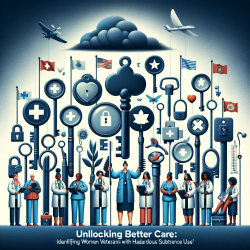Online therapy is becoming increasingly prevalent in schools, providing critical support for students with diverse needs. As practitioners, it is essential to stay informed about the latest research to enhance our services. A recent study titled
Safety of Creatine Supplementation in Active Adolescents and Youth: A Brief Review offers valuable insights that can be applied to our practice, particularly when working with adolescents.
Understanding the Research
The study by Jagim et al. (2018) systematically reviews the safety and efficacy of creatine supplementation in active adolescents. Key findings indicate that creatine, a well-researched dietary supplement, is safe for short-term and long-term use in this demographic, showing minimal risk for adverse events. Despite its common use among adolescent athletes, there is limited research specifically focusing on its safety in younger populations.
Key Findings and Their Implications
The research highlights several important points:
- Creatine supplementation has a strong safety profile with minimal risk for adverse events.
- There is evidence supporting its benefits in enhancing physical performance, which may indirectly benefit cognitive functions.
- There is a need for more targeted research on creatine's safety and efficacy in adolescents.
Implementing Research in Online Therapy
For practitioners providing online therapy, understanding the potential benefits and safety of creatine can inform our approach to holistic adolescent care. Here are some ways to implement these findings:
1. Holistic Approach to Therapy
Integrate discussions about nutrition and supplementation into therapy sessions. Educate adolescents and their guardians about the potential benefits and safety of supplements like creatine, especially if they are involved in sports.
2. Collaboration with Other Professionals
Work closely with dietitians, nutritionists, and healthcare providers to ensure a comprehensive care plan for adolescents. This multidisciplinary approach can help address both mental and physical health needs.
3. Encourage Further Research
Advocate for more research on the safety and efficacy of supplements in adolescents. Encourage academic institutions and research bodies to focus on this underexplored area to provide more robust data.
4. Personalized Care Plans
Develop personalized care plans that consider the individual needs of adolescents. This includes assessing their dietary habits, physical activity levels, and any potential benefits they may gain from supplements like creatine.
Conclusion
The study by Jagim et al. (2018) provides a foundation for understanding the safety and potential benefits of creatine supplementation in adolescents. By integrating these findings into our practice, we can enhance the holistic care provided through online therapy, ensuring that we address both the mental and physical health needs of our adolescent clients.To read the original research paper, please follow this link:
Safety of Creatine Supplementation in Active Adolescents and Youth: A Brief Review.










